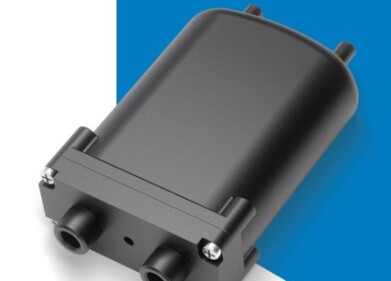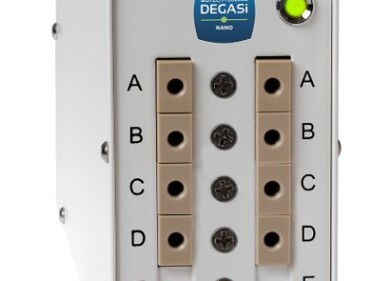Chromatography
New Instrument Fully Automates Sample Preparation for PFAS Analysis in Drinking Water
Apr 11 2020
A new instrument that fully automates sample preparation for the analysis of per- and polyfluoroalkyl substances (PFAS) in drinking water by EPA method 537.1 is designed to help laboratories overcome the challenges associated with current labour-intensive manual methods. Eliminating manual steps supports laboratory cost savings and reduces the risk of errors and re-runs - improving efficiency and enhancing reproducibility.
The Thermo Scientific Dionex AutoTrace 280 PFAS Solid-Phase Extraction Instrument is a high-throughput solid-phase extraction (SPE) system based on the established AutoTrace 280 instrument. The new AutoTrace 280 PFAS system is specifically designed for EPA method 537.1 and alleviates any need for the time-consuming rinsing steps before sample preparation. While fulfilling the stringent requirements of PFAS analysis, the instrument can also run other SPE methods, providing a versatile sample preparation solution for other workflows.
“PFAS are among the most persistent of today’s environmental pollutants and growing concern is putting environmental, municipal water and public health laboratories under increasing pressure to produce accurate, reliable detection with increased throughput,” said Tara Tereso, Vice President and General Manager, Ion Chromatography and Sample Preparation, Thermo Fisher Scientific. “The AutoTrace 280 PFAS is part of Thermo Fisher’s complete range of solutions for PFAS analysis, from water collection through sample preparation, analysis and data generation, and is designed to help laboratories automate sample preparation for greater productivity and more consistent results.”
The AutoTrace 280 PFAS Solid-Phase Extraction Instrument is designed to ensure performance in sample preparation for PFAS analysis in drinking water using the SPE and liquid chromatography/tandem mass spectrometry techniques designated in EPA method 537.1, and similar procedures. It extracts these analytes from large volume aqueous samples easily and efficiently, automating all four steps of SPE (conditioning, loading, rinsing, and eluting), and simultaneously processing up to six samples in 2-3 hours with only 15 minutes of operator involvement.
More information online
Digital Edition
Lab Asia 31.6 Dec 2024
December 2024
Chromatography Articles - Sustainable chromatography: Embracing software for greener methods Mass Spectrometry & Spectroscopy Articles - Solving industry challenges for phosphorus containi...
View all digital editions
Events
Jan 22 2025 Tokyo, Japan
Jan 22 2025 Birmingham, UK
Jan 25 2025 San Diego, CA, USA
Jan 27 2025 Dubai, UAE
Jan 29 2025 Tokyo, Japan



















